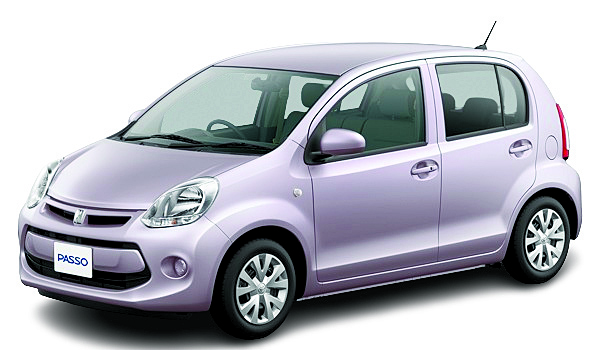Could small cars really replace the motorbike?

There comes a time in every hustler’s journey when the dream shifts. The hum of a motorbike becomes familiar, but the longing for something more enclosed, more dignified—and dare we say, more comfortable—starts to grow.
It’s not just about the rain or the dust. It’s the quiet envy when watching a car glide by, windows up, radio on, passengers dry and composed while you’re struggling with a raincoat that never quite zips right.
That’s how the question starts: Can I move from my boda to a car and still survive in Nairobi?
At first glance, it seems like a simple step forward. Four wheels instead of two. A roof instead of a helmet. But anyone who’s spent their days weaving through traffic on a motorbike knows this isn’t just about transportation.
It’s about cost, flexibility, risk, and return. The boda is more than a machine—it’s a way of life. Replacing it takes more than just an engine upgrade.
Still, for many riders, the temptation is growing stronger, and Kenya’s import yards are filled with options promising fuel efficiency, urban manoeuvrability, and entry-level status on Nairobi’s roads.
Cars like the Toyota Passo, Suzuki Alto, Daihatsu Mira, and Nissan Dayz are now household names, sold with slogans like “cheap to run” or “perfect first car.”
But are they really good enough to take over from the most versatile “vehicle” in the country?
Fuel economics
Let’s start with fuel, the lifeline of any hustle. Motorcycles are famously economical.
A boda can go 50 kilometres on what a small car burns in ten. That fact alone makes many riders hesitant.
But the newer crop of compact cars isn’t as greedy as you might think.
Cars like the Alto and Mira routinely pull 20 kilometres per litre, sometimes more, depending on traffic and driving habits. Hybrids like the Dayz push those numbers higher, and with disciplined use, the fuel cost per day doesn’t have to feel like highway robbery.
What small cars lack in fuel economy, they try to make up for in comfort.
The idea of sitting in traffic with air conditioning, protected from rain and dust, is a powerful lure.
Then there’s storage. A decent hatchback swallows shopping bags, deliveries, and the occasional sack of potatoes far more graciously than a motorbike ever could.
No need to balance crates with bungee cords or worry about speed bumps rattling your spine.
Driving a car, especially in Nairobi’s ever-changing weather, feels like breathing easier.
But not everything is rosy behind the wheel. Traffic in the city is brutal.
Where a boda can slip through gridlocked lanes and beat curfews with ten minutes to spare, a car forces you to sit and stew.
If you don’t plan ahead, you’ll spend more time parked than moving. Parking itself becomes a daily puzzle—finding space, dealing with askaris, and squeezing into spots designed with tuk-tuks in mind.
Cost of ownership
Then there’s the cost of ownership. While a boda’s servicing is usually straightforward—plugs, oil, brakes—the same can’t always be said for cars.
Even a basic part like a bumper or side mirror might cost you the equivalent of a week’s fuel.
However, there’s a wide range of support mechanics now, and the spares market in places like Kirinyaga Road or Grogon is flooded with affordable parts for models like the Passo and Alto.
If you stick with the popular options, maintenance doesn’t have to eat into your rent.
Insurance is another jump. The switch from third-party boda insurance to car insurance can feel steep, but there are growing numbers of underwriters offering fair annual rates for small-engine vehicles.
And many first-time car buyers are beginning with Pay-As-You-Drive or monthly covers to soften the blow.
More than anything, though, replacing a boda is a matter of identity. It’s the difference between showing up to a client’s house on a motorbike versus arriving in a clean, silent hatchback.
It’s the shift from being seen as a rider to being treated as a driver—however subtle that may be. Whether you’re in business, doing deliveries, or simply moving people around, perception carries weight.
Not for everyone
Still, the move isn’t for everyone. If your daily routine depends on agility, speed, and dodging potholes at will, a car may feel like a cage.
It limits your freedom to bypass jams, and unless your routes are long or your cargo is regular, the returns may not be worth it.
The initial thrill wears off when you’re stuck in Uhuru Highway traffic with an overheating radiator and no way out.
But for those ready to grow—personally or professionally—the shift makes sense.
For people expanding their businesses, carrying heavier loads, or looking to operate beyond a single estate, a car brings options. And for those dreaming of more respect and stability, it sends the right message.
There’s no perfect replacement for a boda, just as there’s no single path for every hustler.
But the compact cars flooding our roads are slowly carving out a space in that conversation. They’re not flashy. They don’t roar. But they offer a different kind of freedom. One where you arrive in peace, even if a little late.
So, can a small car replace a boda?
Perhaps not fully. But it can replace the need to keep riding one. And sometimes, that’s exactly the upgrade a dreamer needs.















